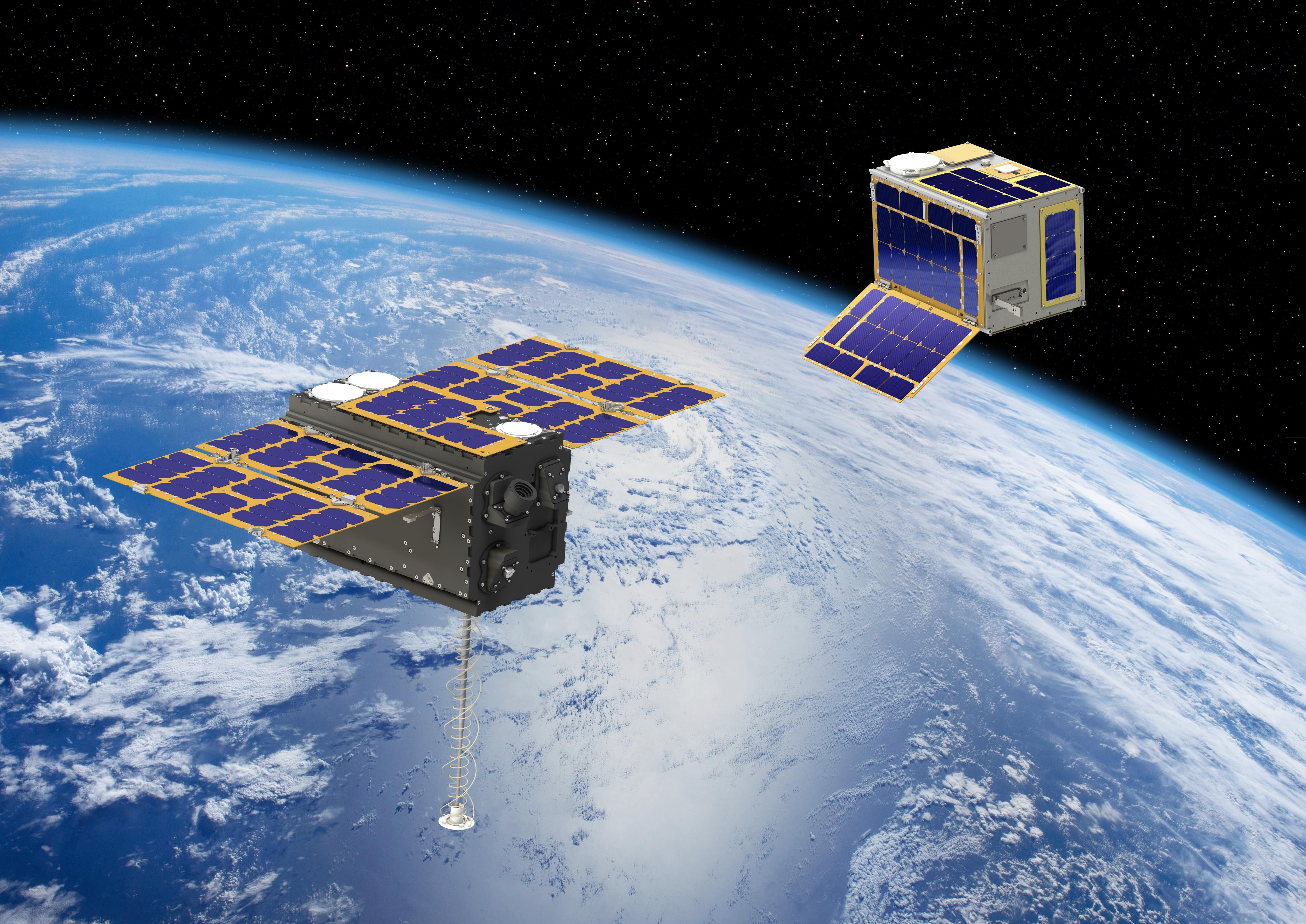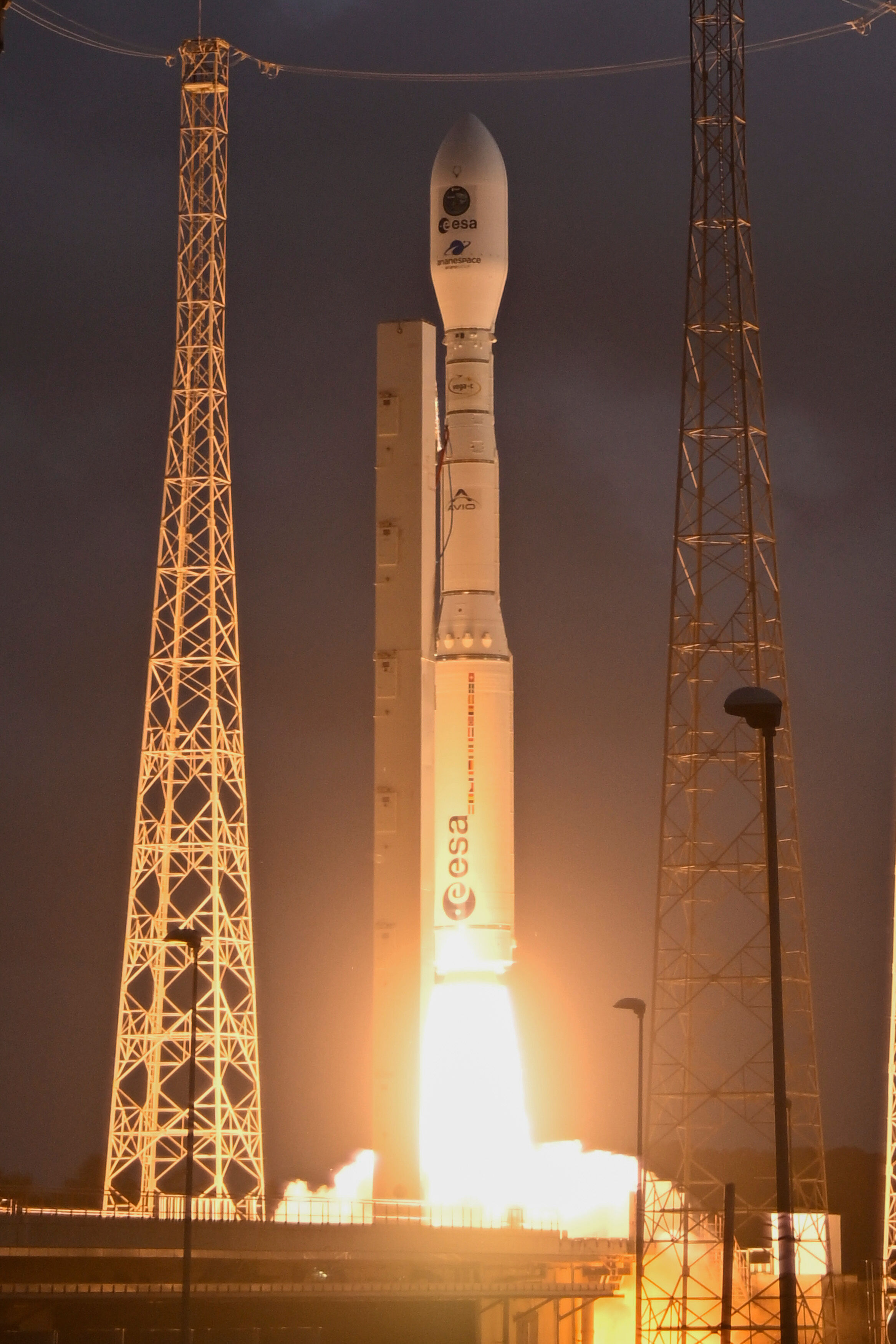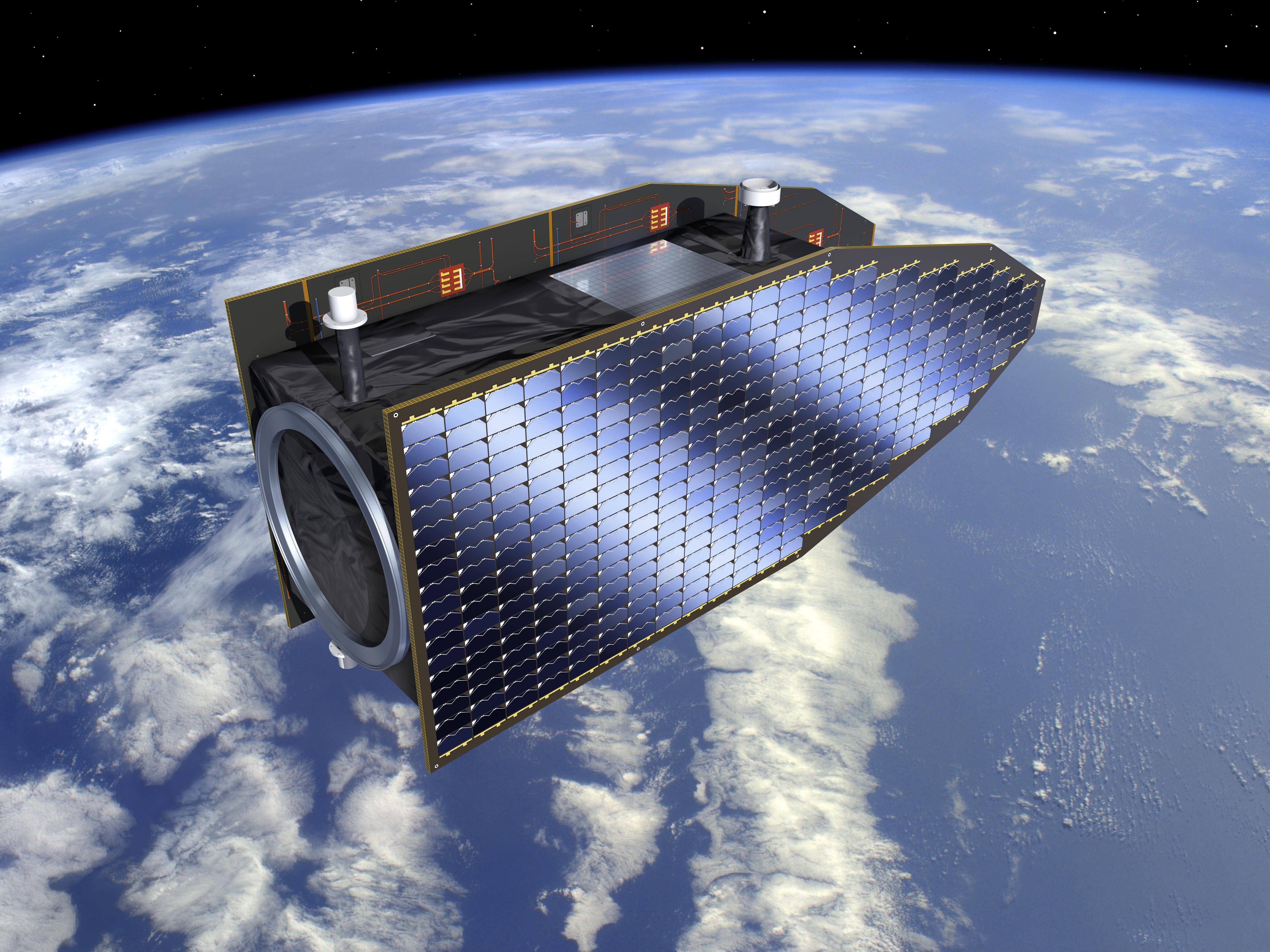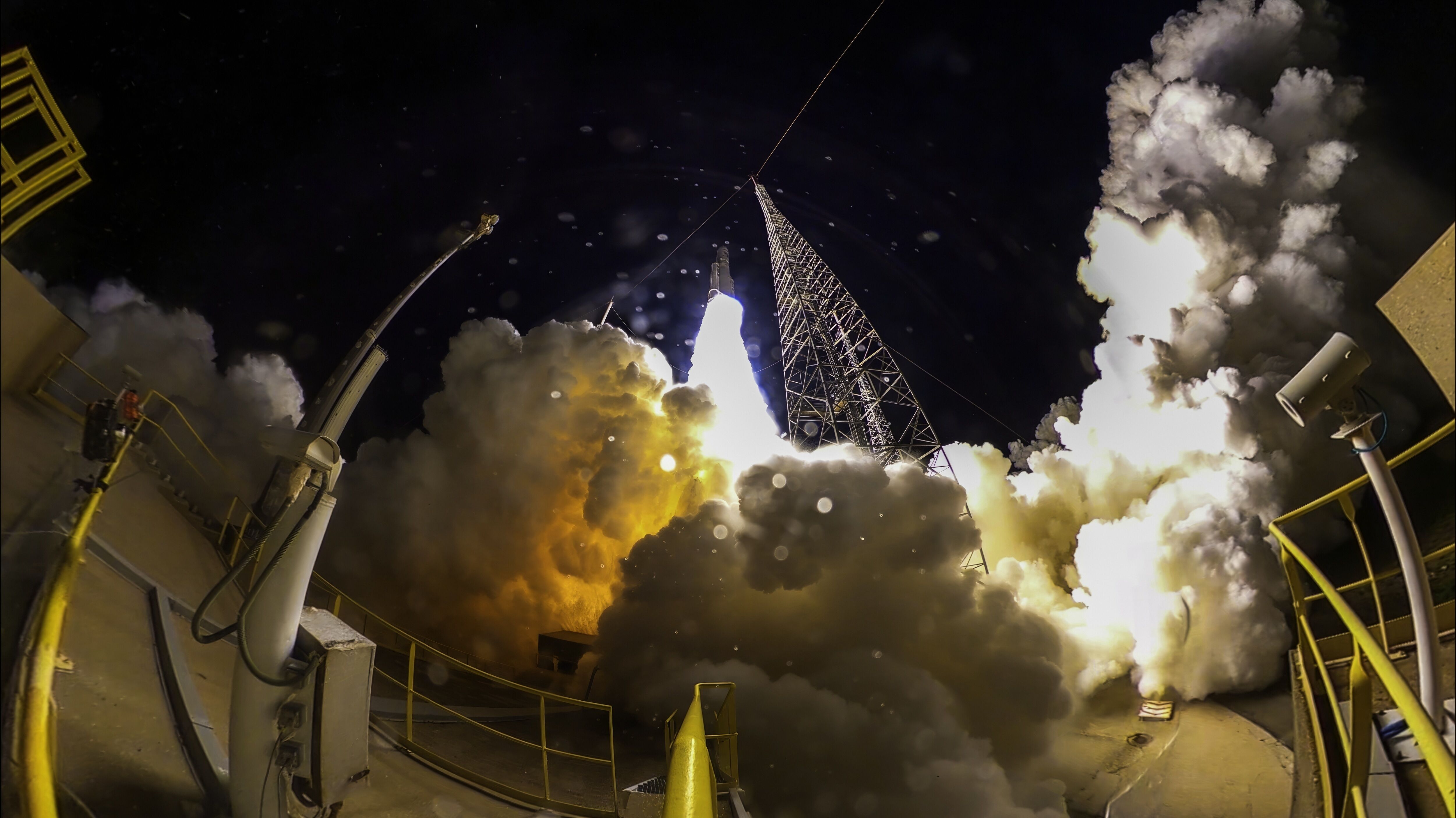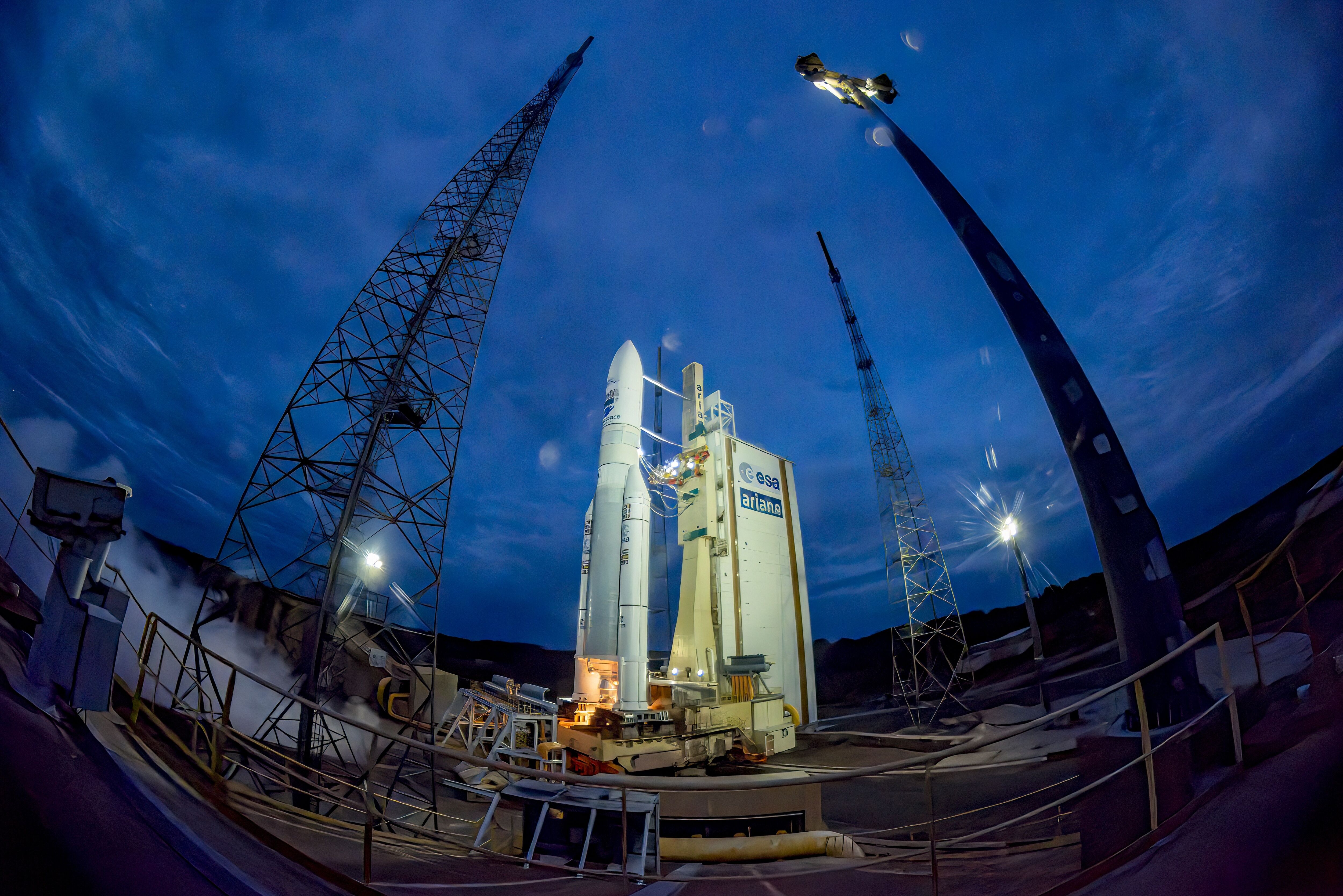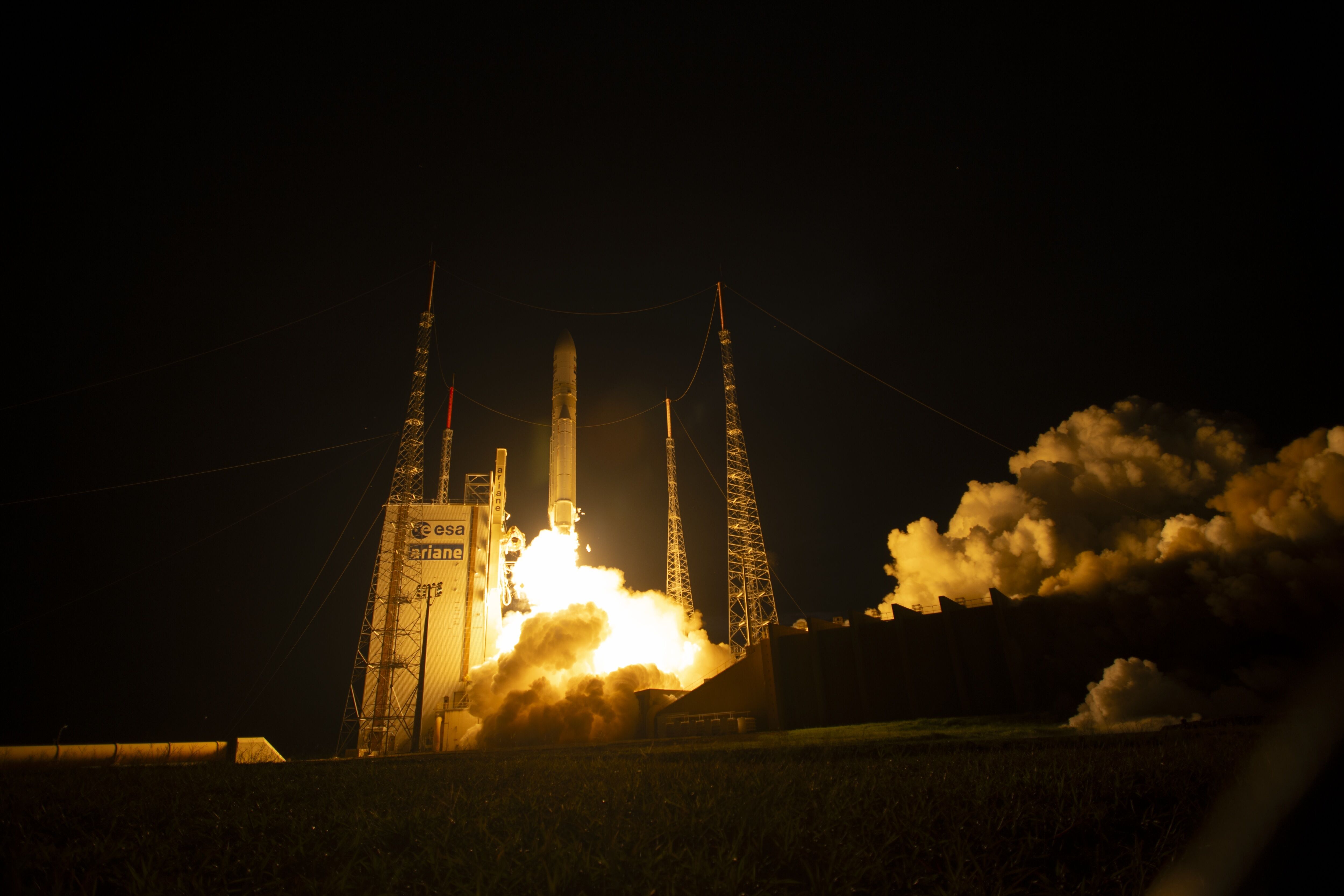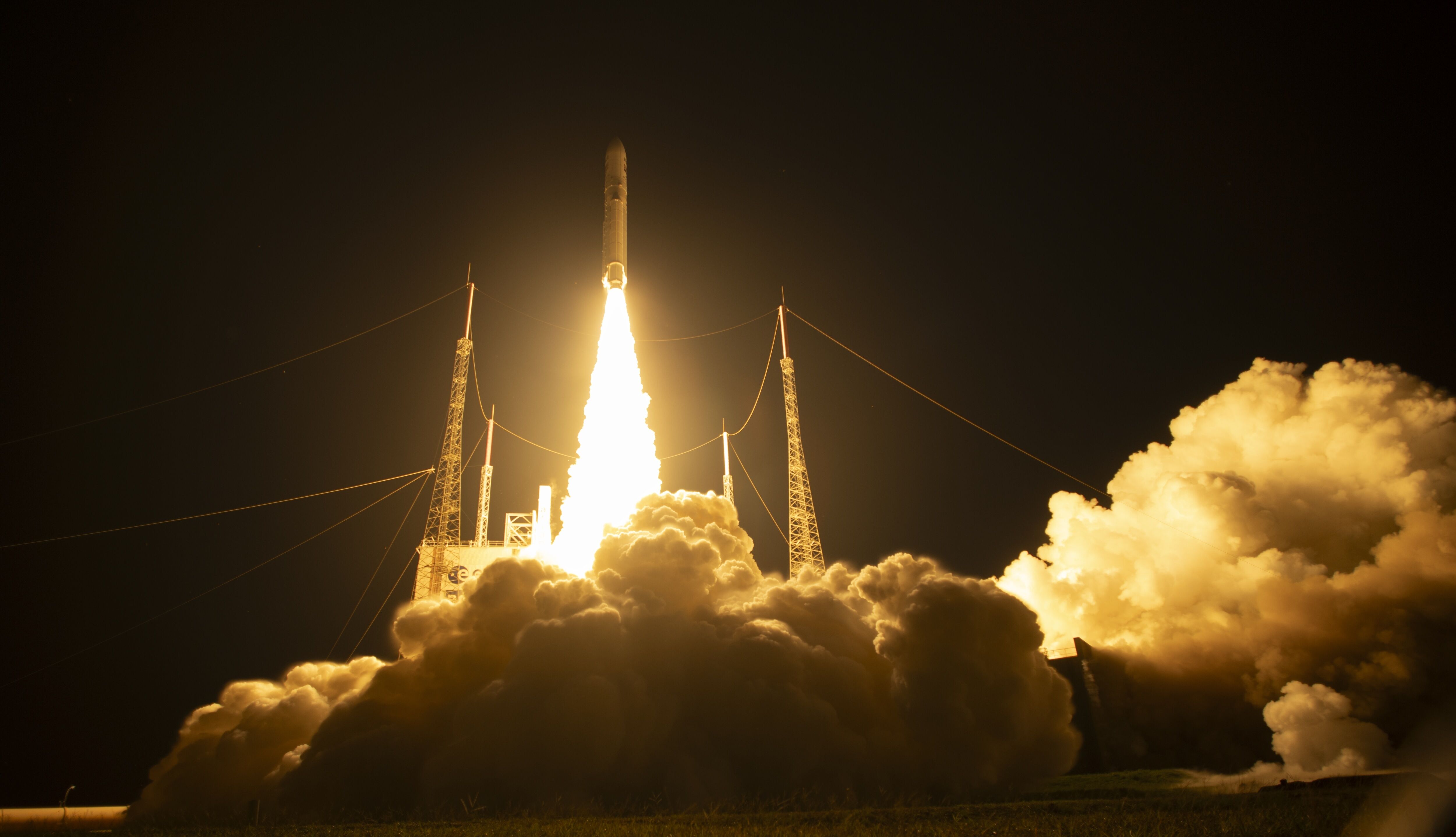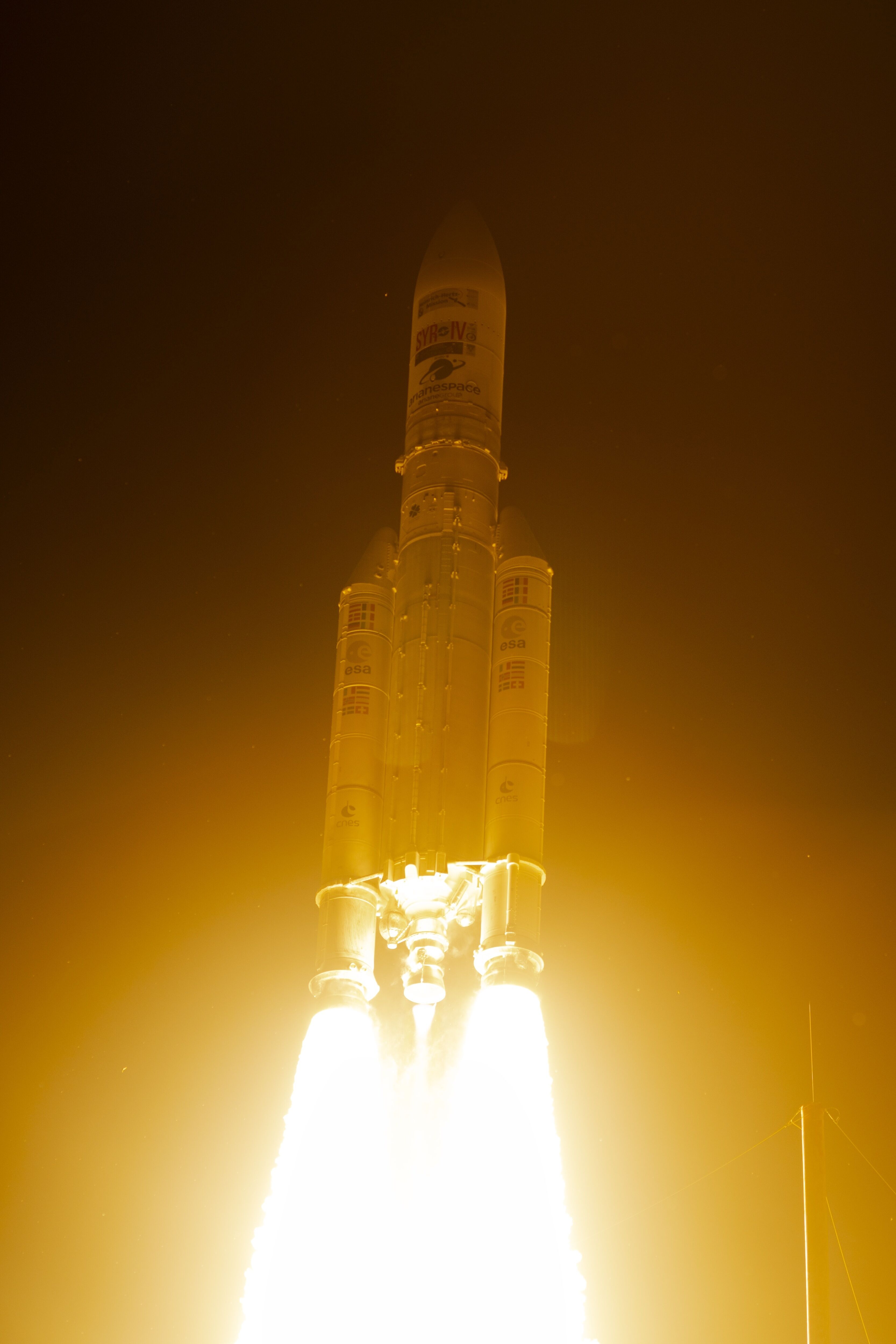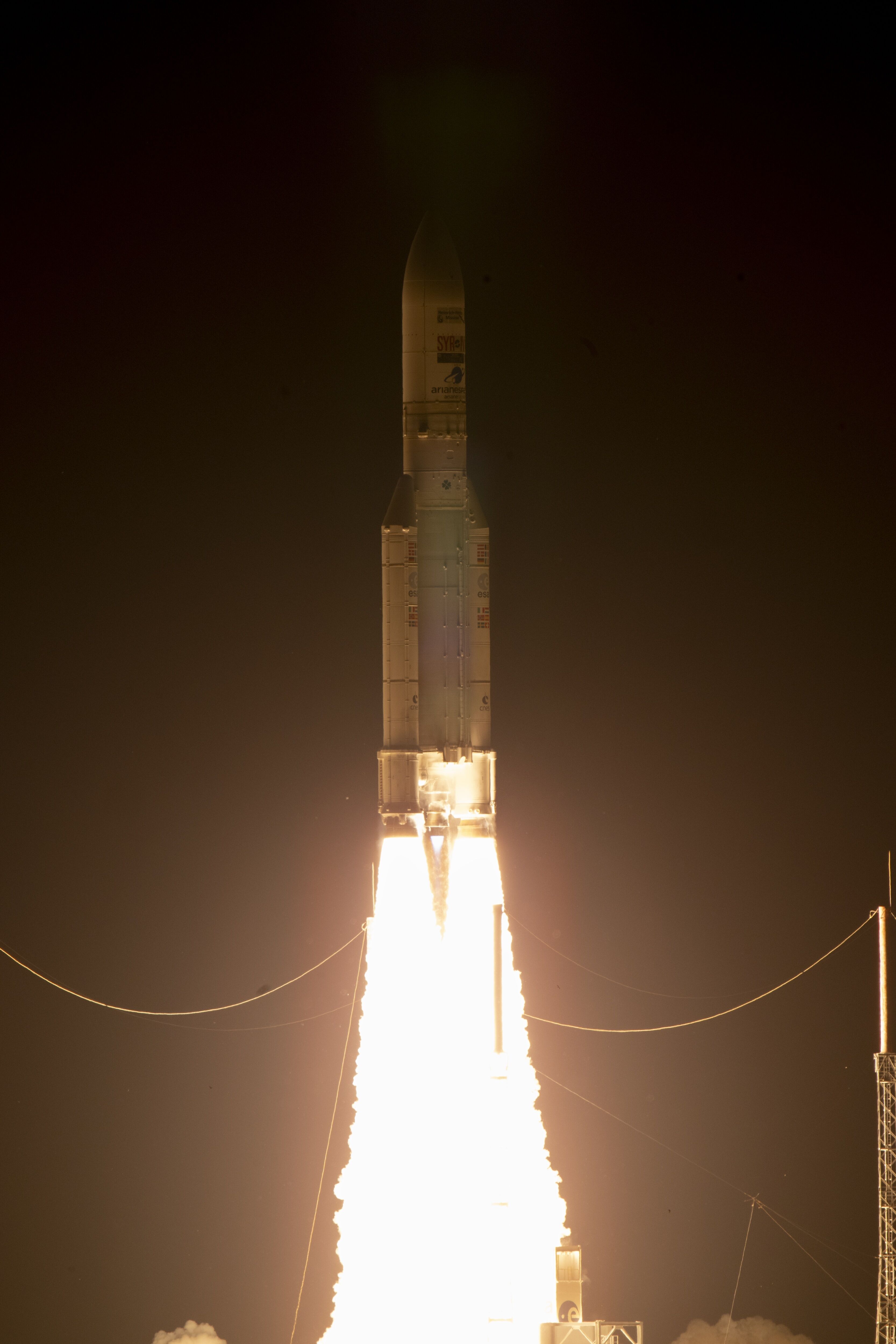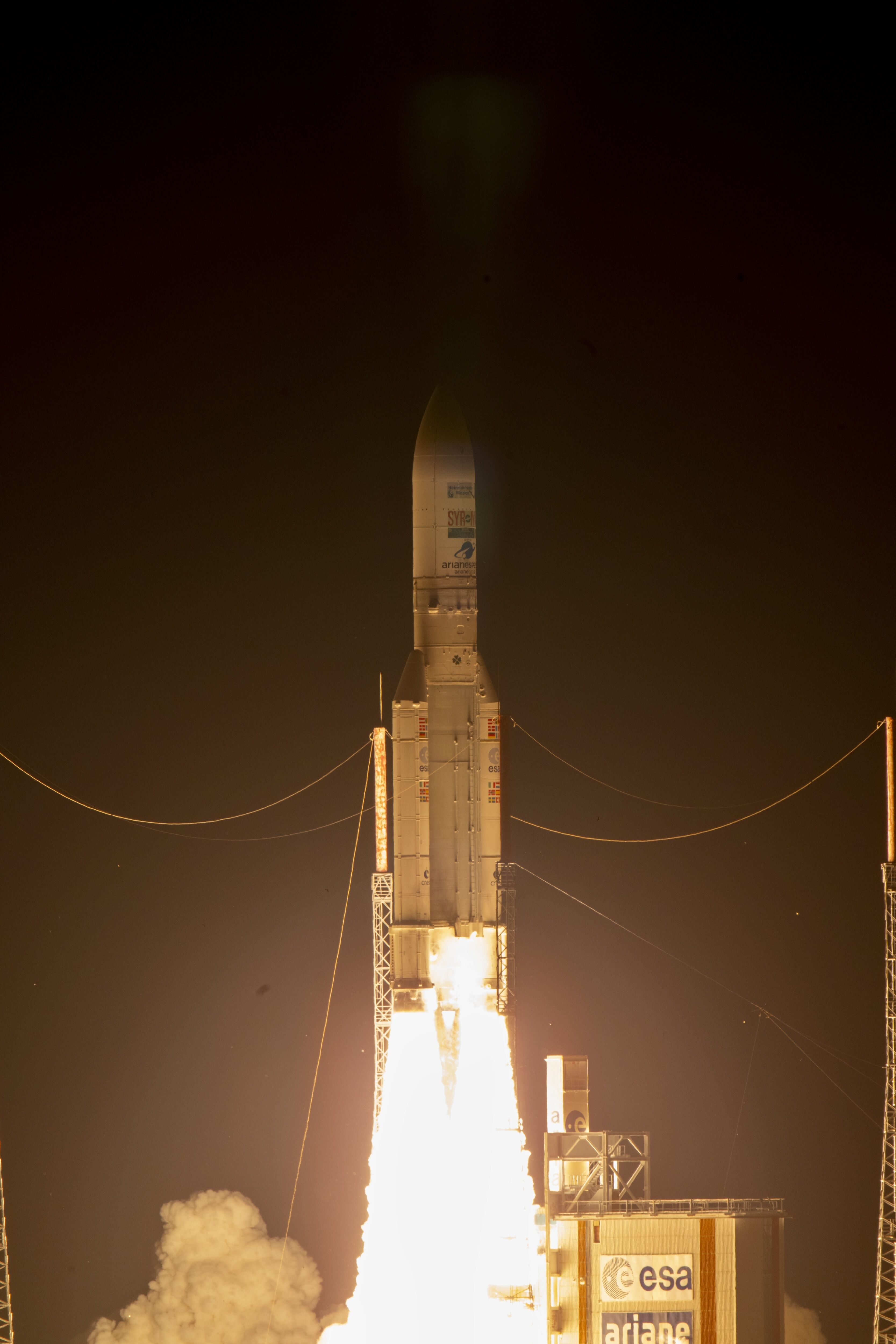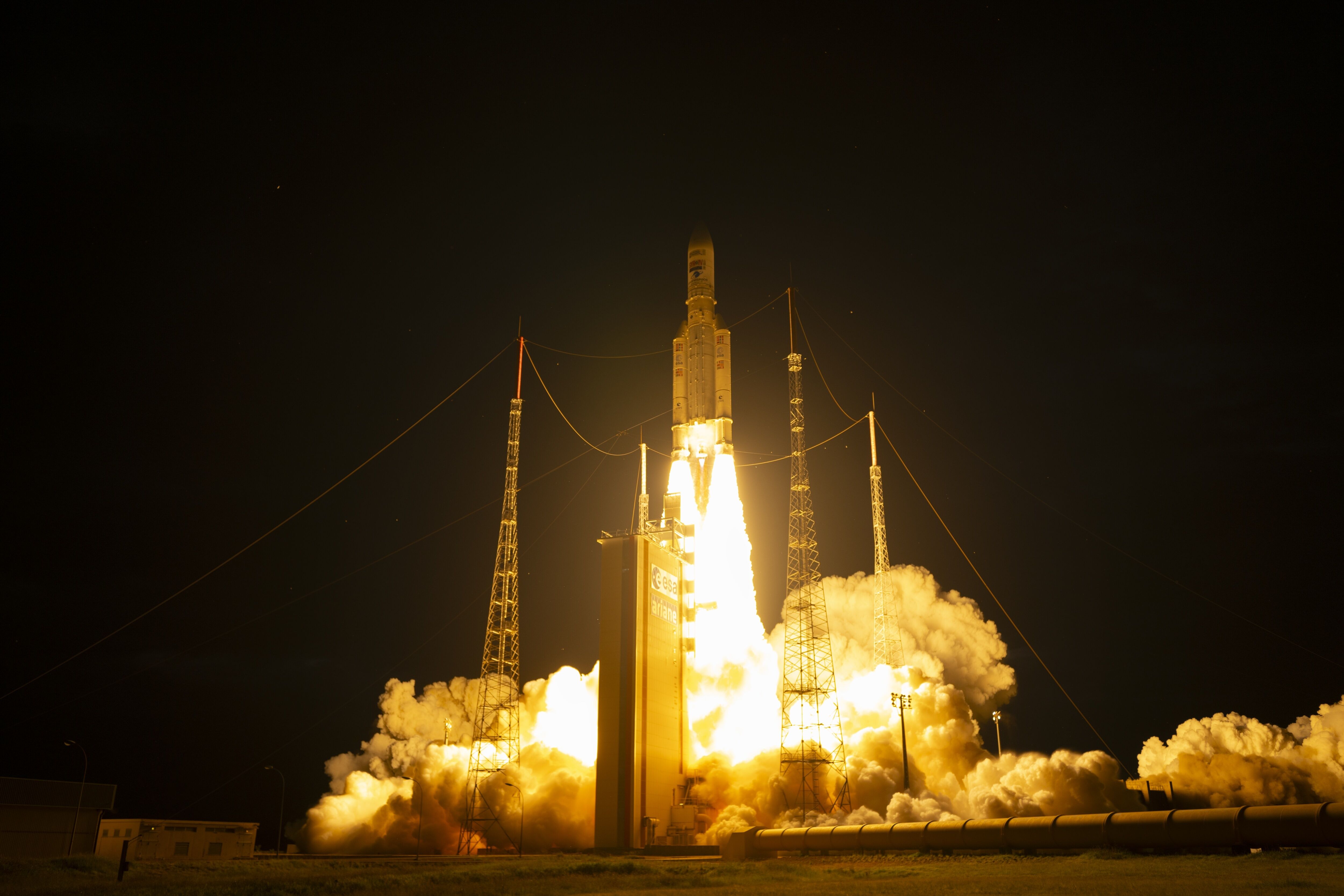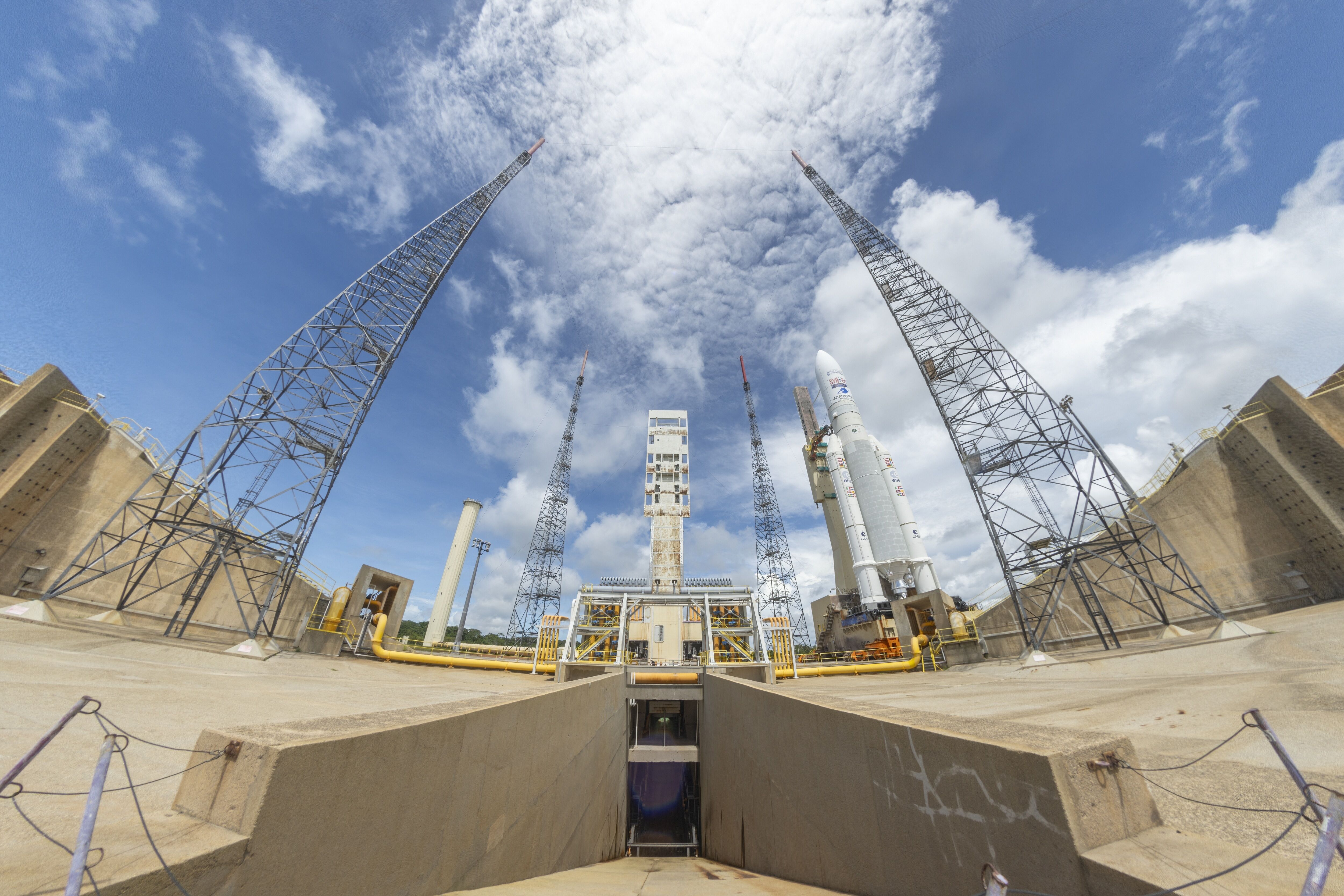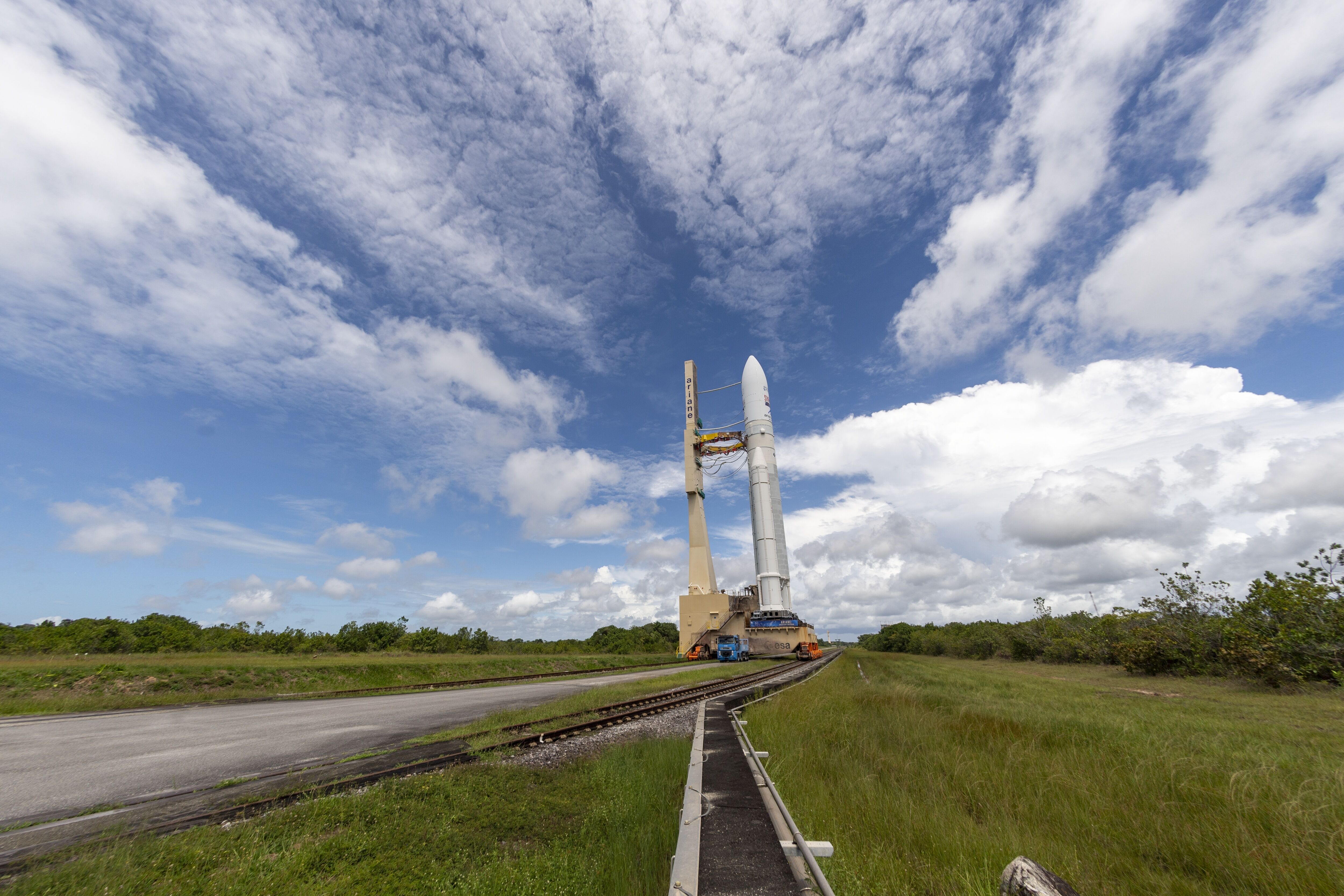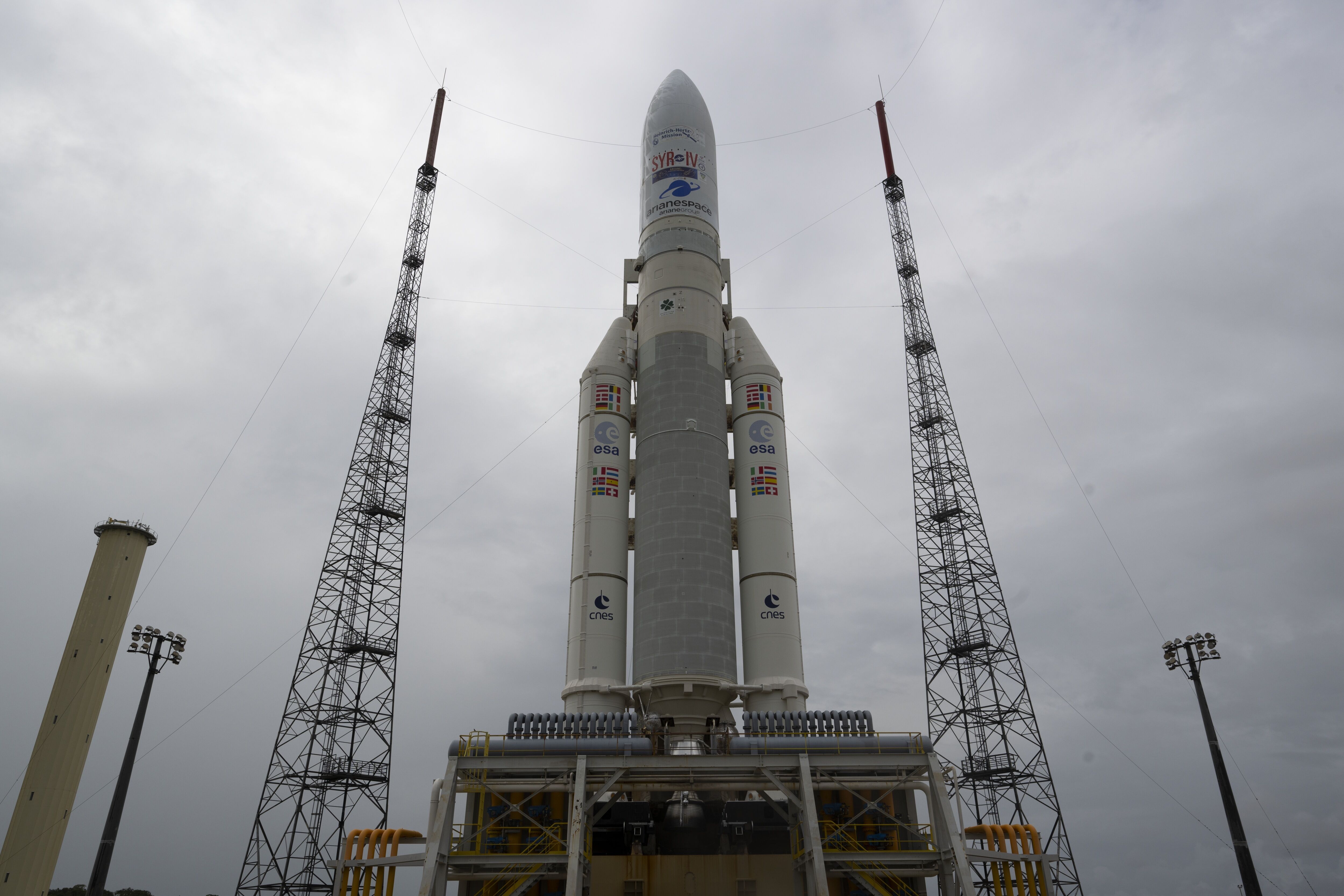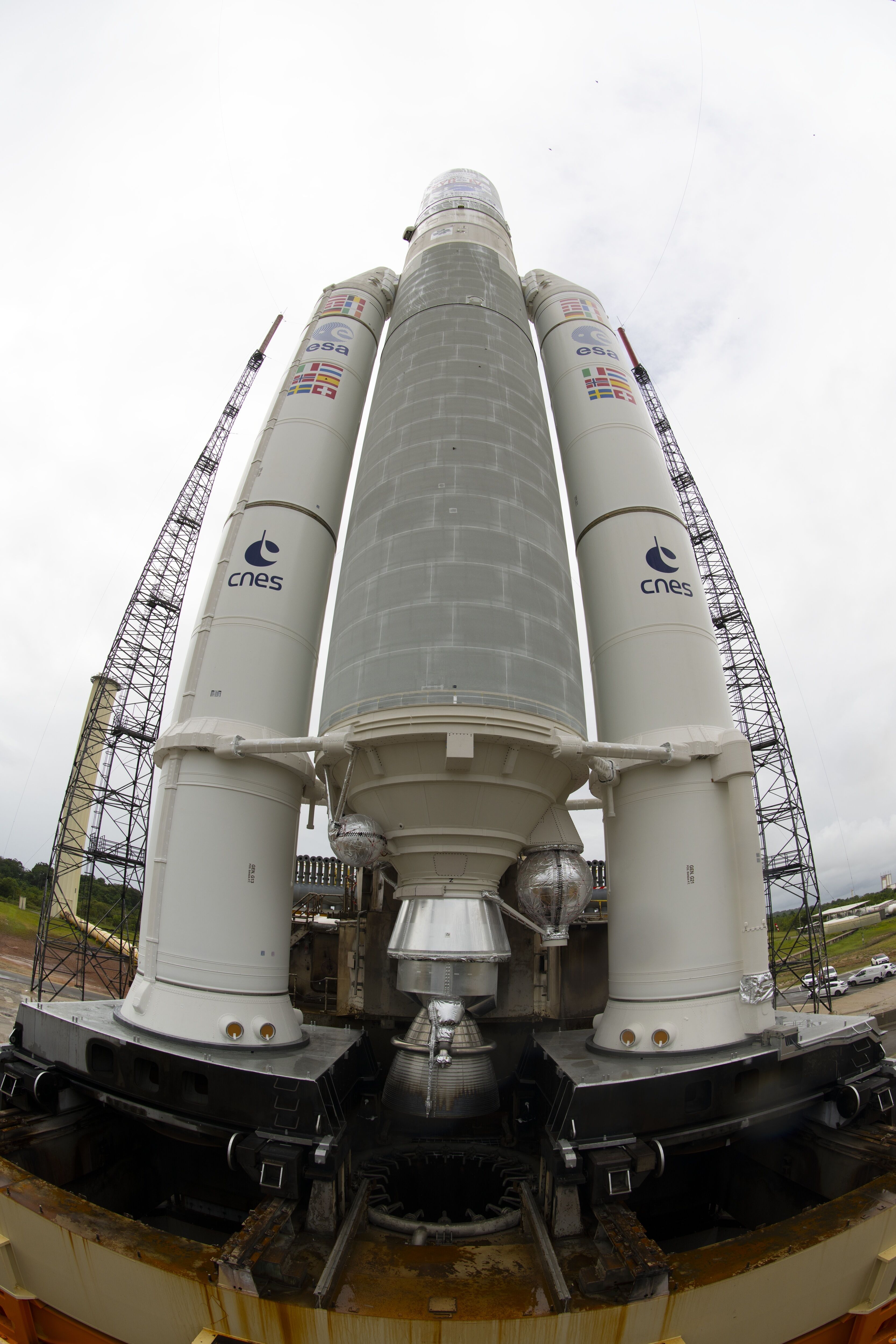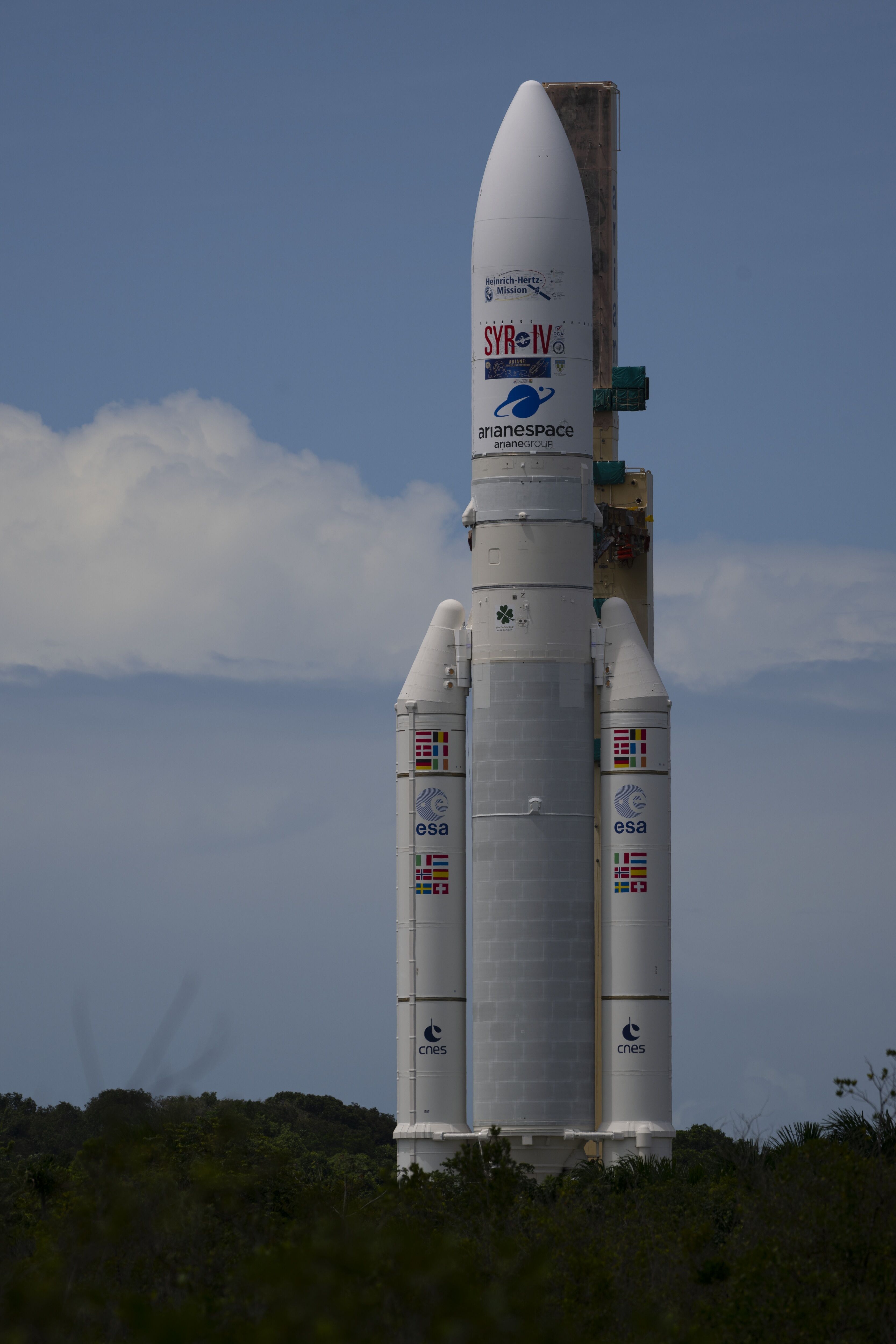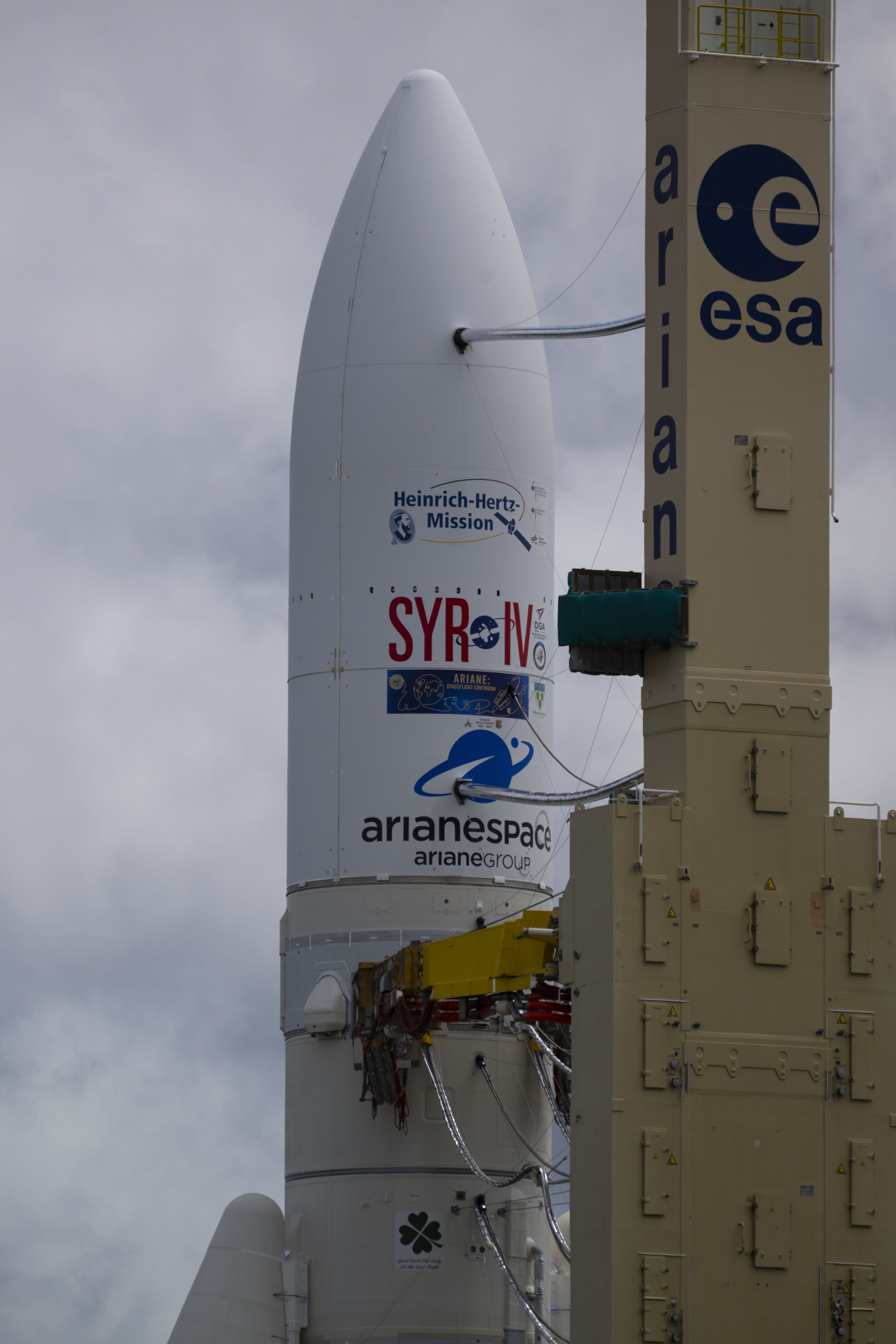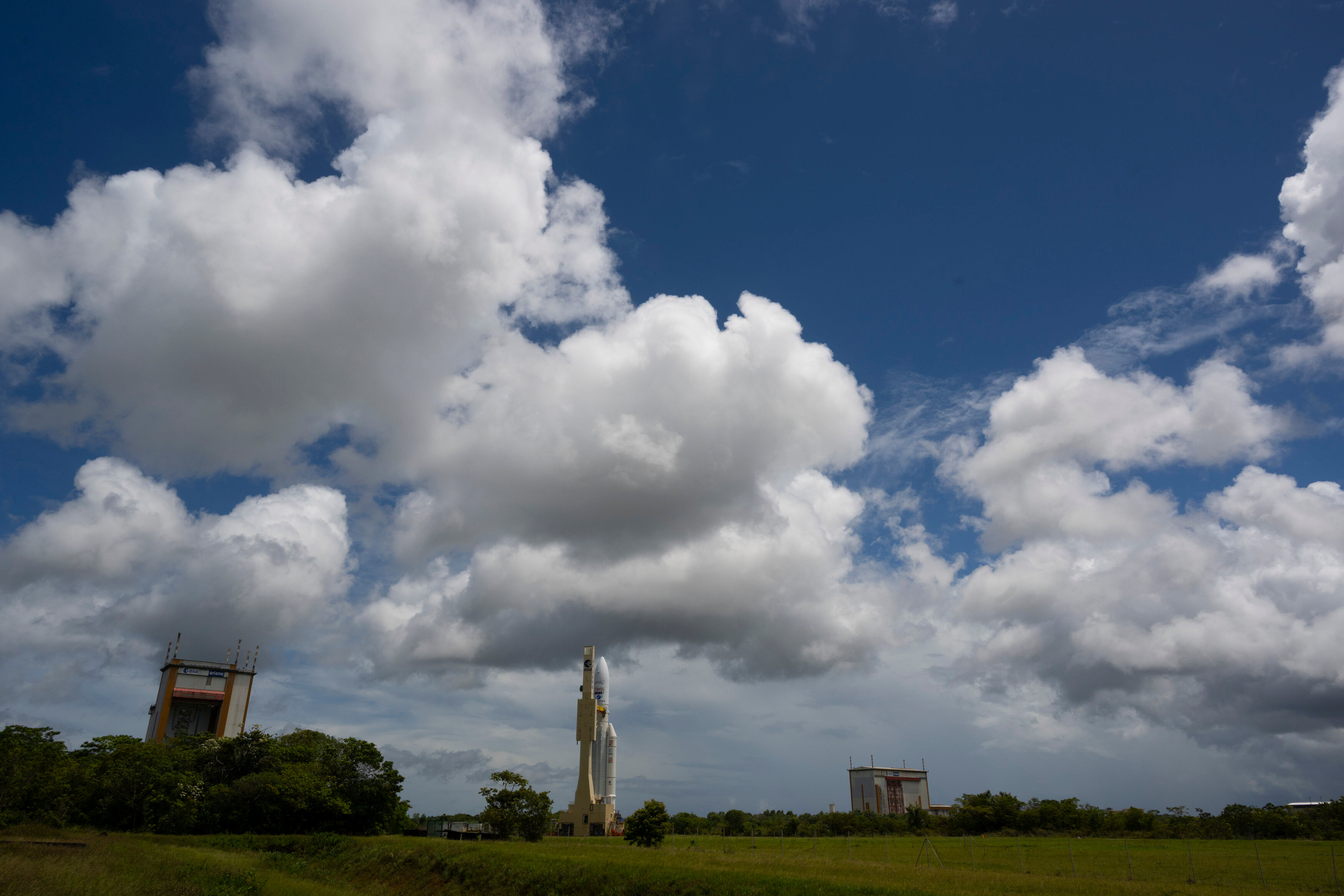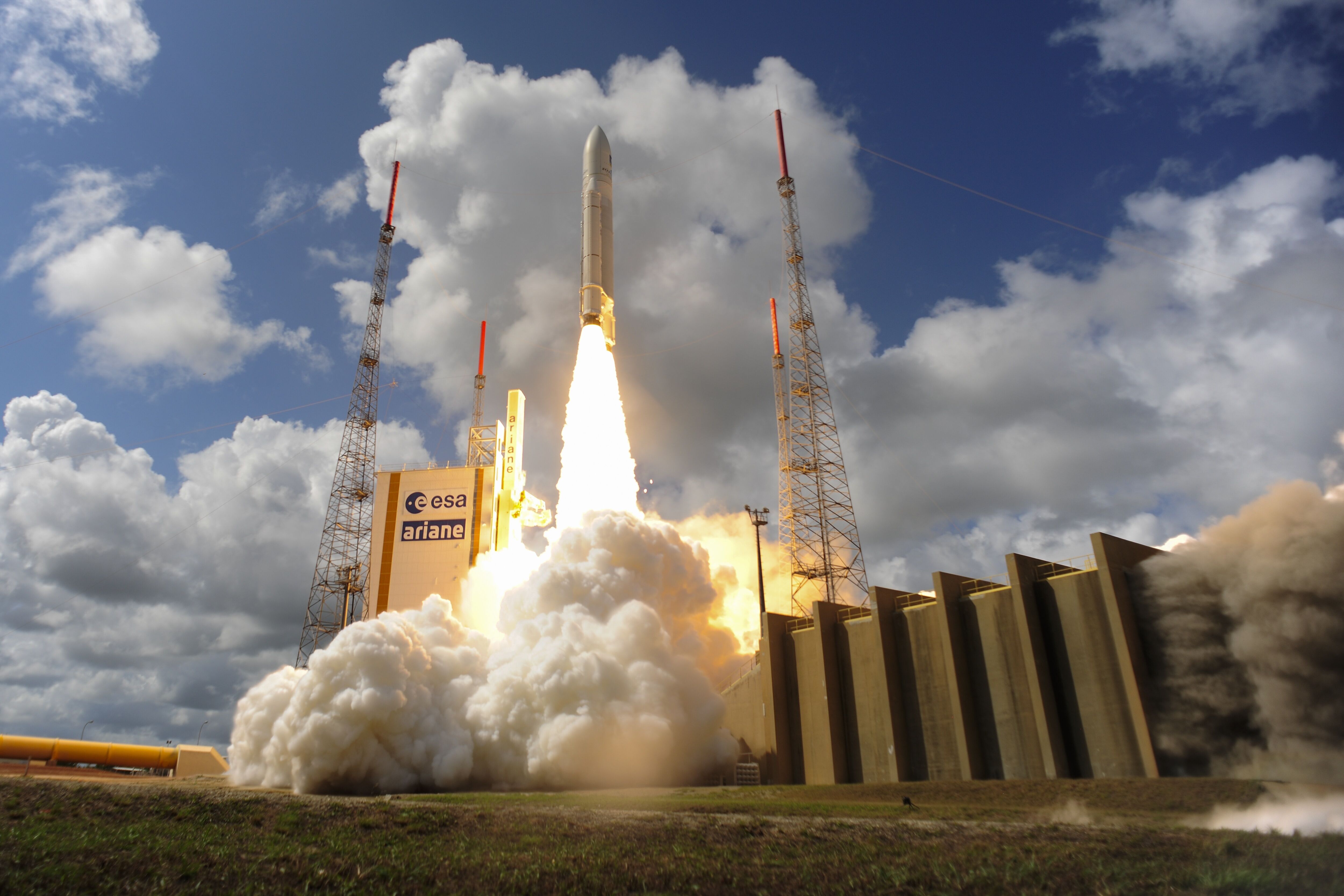
Galileo And EgnosESA in Images - Horizontal ALTESA in ImagesLaunchesSpace transportation - Images for exhibitionsESA in Images 2020Ariane 5 Launches
Liftoff of Ariane 5 carrying four Galileo satellites
Please sign in to download.
Liftoff of Ariane flight VA233, carrying four Galileo satellites, from Europe's Spaceport in Kourou, French Guiana, on 17 November 2016. This mission brings the Galileo system to 18 satellites. The satellites already in orbit will allow the European Commission to declare the start of initial services, expected towards year’s end. The previous 14 satellites were launched two at a time using the Soyuz–Fregat rocket. Galileo is Europe’s civil global satellite navigation system. It will allow users worldwide to know their exact position in time and space with great precision and reliability. Once complete, the system will consist of 24 operational satellites and the ground infrastructure for the provision of positioning, navigation and timing services. The Galileo programme is funded and owned by the EU. The European Commission has the overall responsibility for the programme, managing and overseeing the implementation of all programme activities. Galileo’s deployment, the design and development of the new generation of systems and the technical development of infrastructure are entrusted to ESA. The definition, development and in-orbit validation phases were carried out by ESA, and co-funded by ESA and the European Commission. The European Global Navigation Satellite System Agency (GSA) is ensuring the uptake and security of Galileo. Galileo operations and provision of services will be entrusted to the GSA from 2017.
